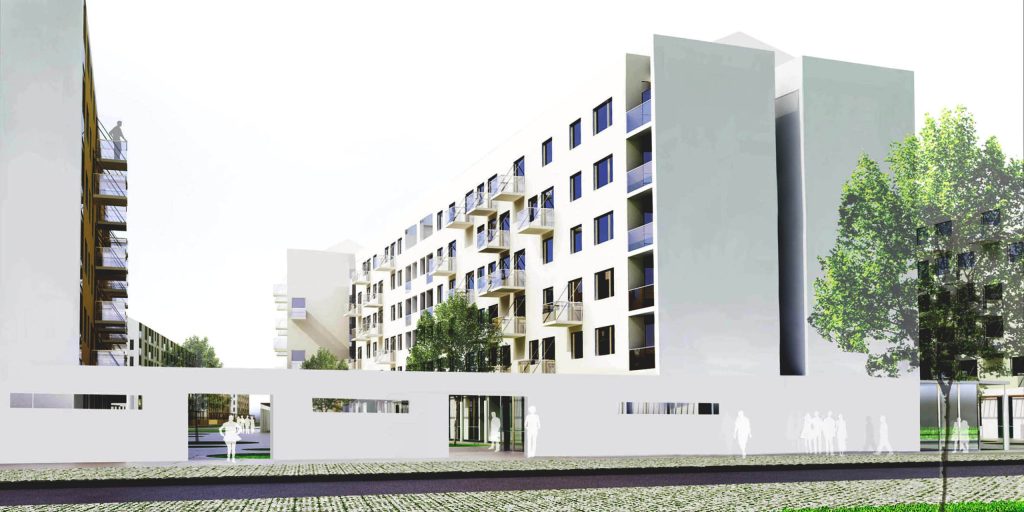Like the rest of the world, the property sector is being swept along with the rapidly changing digital landscape as demand for new technologies increases.
For many years, housing providers have operated using static business processes. Software and business process applications have either been developed in-house by teams of IT experts or purchased expensive bespoke packages that have evolved in line with the changing needs of the growing organisation.
As a result, many housing providers face considerable legacy system issues with a multitude of different systems used by different teams and departments, meaning that there is little or no collaboration or integration. This brings significant challenges to members of staff, making it harder for them to communicate and collaborate with co-workers and restricting their ability to efficiently handle tenant enquiries and maintenance issues. With greater service portfolio diversity comes the necessity to create more streamlined, efficient and cost-effective operating processes and procedures across the organisation.
Cutting expenses whilst keeping a high level of service is essential for Housing Associations and PropTech offers a way to do so by scaling business operations and reducing costs. Property management software on the market currently offer a way to seamlessly integrate core operational systems allowing better collaboration across teams and departments, enhancing their efficiency and flexibility to meet greater demand.
Modern property management platforms can offer a simplified approach to tenancy management by improving the efficiency of workflow and communication processes and bettering the relationship between the tenants and the property managers. Hours on spreadsheets and manual messages increases the manpower needed to manage properties. The whole automating process decreases this communication time benefitting both tenants and the property manager through a more streamlined process.
Software is particularly useful in handling tenant arrears in the Social Housing sector. Universal credit delays may mean that tenants are essentially always in arrears. By using a property management software, a user can ensure that a tenant is sticking to the agreed repayment schedule, even if this is different to the original contract. Furthermore, the tenant can check and be aware of how much rent they owe, be automatically notified of late rents and keep abreast of their rent payment schedule.
Additionally, maintenance issues and check-ins/outs need to be managed efficiently. Efficient workflow management is essential when trying to organise and fix multiple maintenance issues at once. When an issue is immediately raised, there needs to be a process in track to monitor the progress and update/inform the appropriate people. If you are overwhelmed by calls coming in from your tenants you can avoid this problem through the use of an app, as tenants can raise issues directly from the app. Contractors need to be made aware of the situation quickly and the issues to be resolved as fast as possible. Delays and miscommunication lead to time wasting and hassle for both the tenant and the contractor. Clarity is essential from the start in terms of accessibility instructions into the house and availability to carry out the work order. The solution to this is to use software via an app or desktop that allows you to host all the communication on one job sheet and issue the information to everyone involved quickly and with a virtual paper trail. This makes the issue clear starting with a message from the tenant to the property manager who then sends a message directly to the contractor with a tap on the app. Images and videos can be sent across supporting the message. All parties can then track the issue and be notified immediately once the work order is completed. Quotes, tracking and access details can be uploaded simply via software minimising communication time and leading to efficient progress of any maintenance issues. The issue raised is then seen by yourself or an assigned property manager who can then forward the message onto the appropriate contractor.
In order to achieve success when scaling, PropTech can help you stay centred and in control. There are several platforms on the market to suit your business needs, examples include re-leased, Buildium, Arthur Online, Appfolio and each have different benefits to suit each individual set up.
Marc Trup is the Founder and CEO of Arthur
Marc fell into the property sector after selling his first business in 1998 to BUPA healthcare. Focusing on residential property, he built up a portfolio in and around the London area, starting off with a small block of flats. Over the following 15 years Marc grew his portfolio to manage over 85 properties. He wanted a system that allowed him to manage the portfolio from his iPhone, while drinking his espresso at the local coffee shop. Having searched online to find an app to help him do just that, he realised that it simply didn’t exist. So, he founded Arthur to make not only his life easier but that of other property managers. Arthur is a cloud-based platform that enables property managers to respond instantly and solve problems fast – be it with tenants, contractors, property owners or letting agents.


